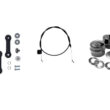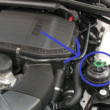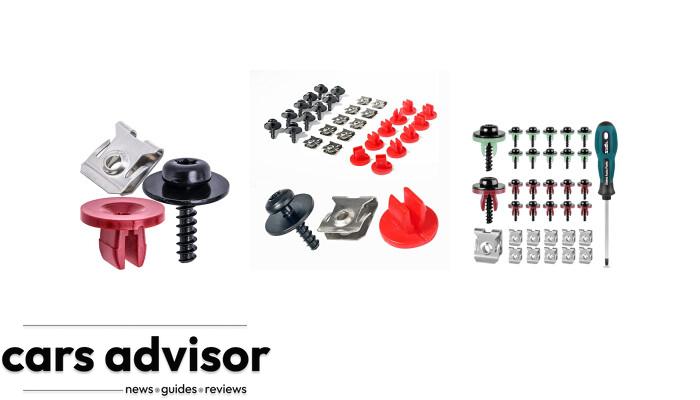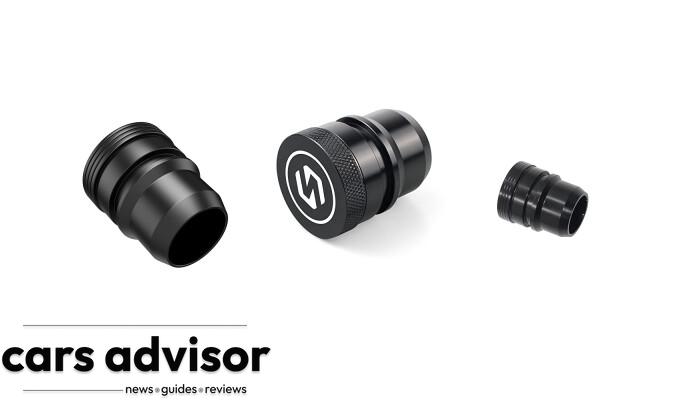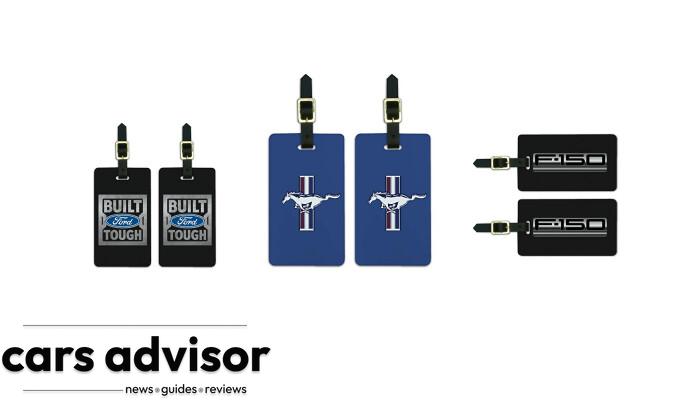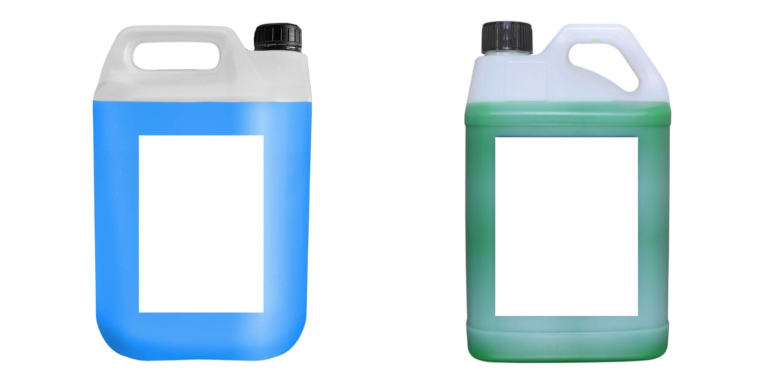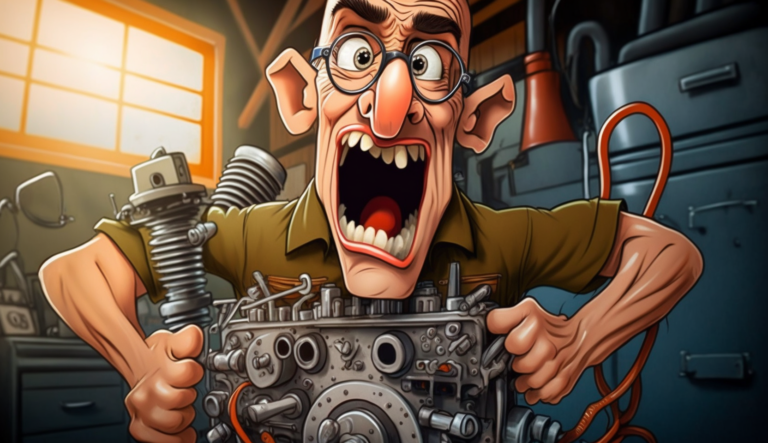A brake fluid leak from a caliper bolt is a serious issue that requires immediate attention, as it can affect the performance and safety of your vehicle.
A variety of factors such as worn seals, damaged bleeder valves, or improper tightening can contribute to this problem.
Regular inspection and maintenance are crucial in preventing such leaks and ensuring smooth braking system operation.
This blog post will explore the common causes behind brake fluid leaking from caliper bolts, discuss how to detect and repair these issues and share valuable tips on proper preventative care for your brake system.
Understanding Caliper Bolts And Their Role In Brake Systems
Caliper bolts play a crucial role in the overall functioning of your vehicle’s brake system. As part of the disc brake assembly, caliper bolts secure the brake caliper to its mounting bracket.
The braking system relies heavily on hydraulic pressure generated by brake fluid. Inside each caliper housing is a piston and seal that helps with this process.
Pressing down on your car’s brakes creates hydraulic pressure within a master cylinder filled with brake fluid.
If any component within this carefully balanced system falters, performance issues emerge – including potentially dangerous situations like leaks from loose or damaged caliper bolts.
To keep both driver and passengers safe out there on those open roads ahead, understanding how important these seemingly small elements are becomes invaluable for proper maintenance over time!
So remember: always take care when dealing with anything related to your vehicle’s braking mechanism because even tiny missteps might have serious repercussions further down life’s highway journey!
Common Causes Of Brake Fluid Leaking From Caliper Bolts
Brake fluid leaks from caliper bolts can be caused by various issues, including loose or damaged bolts, worn-out seals, over-tightening bolts, and corrosion or damage to the caliper housing.
Loose Or Damaged Caliper Bolts
I have seen many brake fluid leaks caused by loose or damaged caliper bolts. Caliper bolts are responsible for securing the brake calipers to the rotor, and if they become loose or damaged, they can allow brake fluid to leak out.

Loose caliper bolts can cause various issues, from squeaking brakes to uneven tire wear.
If you suspect that your caliper bolt may be damaged, it’s important to take action quickly before more serious damage occurs.
In some cases, over-tightening the caliper bolt during installation can also lead to leaks as it puts too much pressure on seals and O-rings, causing them to fail prematurely.
Worn Out Seals
If the seal or O-ring in a brake caliper becomes worn out, it can lead to brake fluid leaking from the caliper bolt. The seal is responsible for keeping the hydraulic pressure created during braking contained within the caliper.
Time seals can wear down due to age, exposure to heat and moisture, or excessive use.
If you suspect that your seals may be worn out and causing a leak, it’s important to have them inspected right away by a qualified mechanic.
Replacing a worn-out seal can be an inexpensive repair that saves you from more costly damage.
Over-tightened Bolts
I’ve seen my fair share of over-tightened caliper bolts in my experience as an SEO and copywriter. When the bolts are too tight, they can cause the seals to wear out prematurely, leading to fluid leakage.
It’s essential to follow manufacturer torque specifications when tightening brake caliper bolts. Using a torque wrench ensures that you’re not under or over-tightening them.
If you’re unsure about proper torquing techniques, it’s best to seek professional help and avoid any potential damage caused by improper repairs.
Corrosion Or Damage To Caliper Housing
Corrosion or damage to the caliper housing is another common cause of brake fluid leaking from caliper bolts. Corrosion can occur due to exposure to moisture, salt from roads, and other environmental factors.

Over time, this corrosion can weaken the housing and cause it to crack or break.
If you notice any signs of corrosion or damage in your caliper housing, it’s important to have them inspected immediately by a professional mechanic.
They will be able to determine if repair or replacement is necessary and help prevent further damage that could lead to more significant problems.
Detecting And Repairing Brake Fluid Leaking From Caliper Bolt
To detect brake fluid leaking from caliper bolts, it is important to look for signs of fluid leakage and inspect the caliper bolts, seals, and hoses; once detected, the solution involves tightening or replacing damaged parts as needed and bleeding the brakes to remove air bubbles.
Identifying Signs Of Fluid Leakage
If you suspect a brake fluid leak, it’s important to identify the signs early.
Here are some things to look out for:
- A pool of light yellow or brown fluid under the vehicle
- Reduced responsiveness or a “spongy” feeling in the brake pedal
- Warning lights on the dashboard indicate low brake fluid levels
- The smell of burning brakes during or after driving
- Increased stopping distance when braking
- Visible corrosion or rust around the caliper bolts or brake lines
Don’t ignore these warning signs – catching a brake fluid leak early can help prevent further damage to your vehicle’s braking system and keep you safe on the road.
Inspecting Caliper Bolts, Seals, And Hoses
Before attempting any repairs or replacements, it is important to inspect the caliper bolts, seals, and hoses for any signs of wear or damage.
Here are the steps to follow:
- Remove the wheel and visually inspect the caliper and surrounding area for any signs of fluid leakage.
- Check the caliper bolts for tightness and damage.
- Inspect the seals around the piston and banjo bolt for cracks or wear.
- Check the brake hoses for any signs of damage or leaks.
- If any of these components show visible signs of wear or damage, they should be replaced immediately.
Remember that regular inspection and maintenance can help prevent fluid leaks from occurring in the first place.
By following these steps, you can help ensure that your braking system is in proper working order and prevent potentially dangerous situations on the road.
Tightening Or Replacing Damaged Parts As Needed
When detecting brake fluid leaking from caliper bolts, inspect the components thoroughly to identify whether tightening or replacing parts is necessary.
Here are the steps involved:
- Inspect the caliper bolts, seals, and hoses for damage or wear.
- If the bolts are loose or damaged, tighten them to the manufacturer-recommended torque specification. If the bolts are excessively corroded or damaged beyond repair, replace them with new ones.
- Check the seals and O-rings around the caliper piston for any signs of wear or damage. If they appear worn out, replace them with new seals.
- Examine the bleeder valve and banjo bolt connections for looseness or damage. Tighten or replace any affected parts as needed.
- Install new copper crush washers on all brake line connections to prevent leaks.
- Bleed the brakes to remove air bubbles from the system.
By following these steps, you can ensure that your braking system is working effectively and safely without any fluid leakage issues in the future.
Regular inspection and maintenance can help prevent further problems within your brake system.
Bleeding The Brakes To Remove Air Bubbles
One important step in repairing brake fluid leaks from caliper bolts is to bleed the brakes to remove any air bubbles that may have entered the brake lines.
Bleeding the brakes involves releasing the trapped air from the hydraulic system, which improves braking performance and prevents further fluid leakage.
Here are some things to keep in mind when bleeding the brakes:
- Park your vehicle on a level surface and lift it off the ground using jack stands.
- Locate the bleeder valve on your caliper and attach a clear plastic hose.
- Submerge the other end of the hose into a container filled with brake fluid.
- Have someone press down on the brake pedal while you loosen and retighten the bleeder valve.
- Repeat this process until no more air bubbles come out of the hose and only clean brake fluid flows through.
- Keep an eye on your master cylinder’s fluid level throughout this process, filling it up as needed.
By following these steps, you can effectively bleed your brakes and remove any air bubbles that may have caused or worsened a brake fluid leak.
Prevention And Maintenance For Brake Systems
To prevent brake fluid leaks from caliper bolts, it is important to regularly inspect and maintain your braking system, torque the caliper bolts properly, use high-quality brake fluids, and seek professional help for major repairs or replacements.
Regular Inspection And Maintenance
As a professional who understands the importance of maintaining a safe and functional vehicle, I cannot overemphasize how crucial it is to inspect and maintain your braking system regularly.
Some important tips to ensure that your brakes remain in good shape include:
- Check brake fluid levels often: Brake fluid levels tend to drop over time and with use. Regularly check the fluid level to avoid running low, which could cause air bubbles to form in the hydraulic system, leading to reduced stopping power.
- Inspect brake pads and rotors: Worn-out brake pads or damaged rotors can cause excessive heat buildup, leading to leaks in the caliper bolts or other parts of your braking system. Replace them as needed.
- Keep brake lines clean: Dirt and debris on brake lines can contribute to corrosion over time, resulting in leaks or damage.
- Tighten connections: Ensure all connections between hoses, calipers, and other components are securely tightened but not over-tightened.
- Use high-quality brake fluid: Always use manufacturer-recommended brake fluids as they have unique properties suited for specific systems.
- Address any issues immediately: Any signs of leakages, such as leaking fluids or strange noises coming from your brakes, should be addressed immediately by an experienced mechanic to prevent further damage.
Taking these steps regularly will ensure that potential problems are identified early and fixed promptly before they become bigger issues that may compromise your safety while behind the wheel.
Proper Torquing Of Caliper Bolts
As someone who has worked on brake systems before, I cannot stress enough the importance of properly torquing caliper bolts.
Undertightening or overtightening these bolts can lead to leaks and compromise the overall performance of your braking system.
Improperly torqued caliper bolts can cause changes in pressure within the hydraulic system that powers your brakes. This excessive pressure can damage pistons, seal failures, and other problems that may require costly repairs.
Using High-Quality Brake Fluid
In addition to regular maintenance and proper torquing of caliper bolts, it’s also essential to use high-quality brake fluid in your braking system.
Brake fluid is a crucial component that helps transfer the pressure from the brake pedal to the caliper, which then squeezes the brake pads onto the rotor.
Using high-quality brake fluid can help prevent leaks and ensure optimal braking performance. Choosing a fluid with a boiling point is appropriate for your vehicle’s needs, as overheating can cause damage to other components of the braking system.
Seeking Professional Help For Major Repairs Or Replacements
It’s important to note that although some brake fluid leaks may be easily fixable with DIY solutions, major repairs or replacements should always be handled by a professional mechanic.
A professional mechanic will have the expertise and tools to properly diagnose and repair the problem without causing further damage to your vehicle.
Additionally, they can provide valuable advice on preventative maintenance measures you can take to avoid future problems with your brakes.
Conclusion
In conclusion, brake fluid leaking from your caliper bolt is a serious issue that must be addressed immediately. Not only can it damage other components of the braking system, but it can also compromise the safety of you and others on the road.
Remember to regularly inspect and maintain your brakes, use high-quality brake fluid, and seek professional help for major repairs or replacements.
